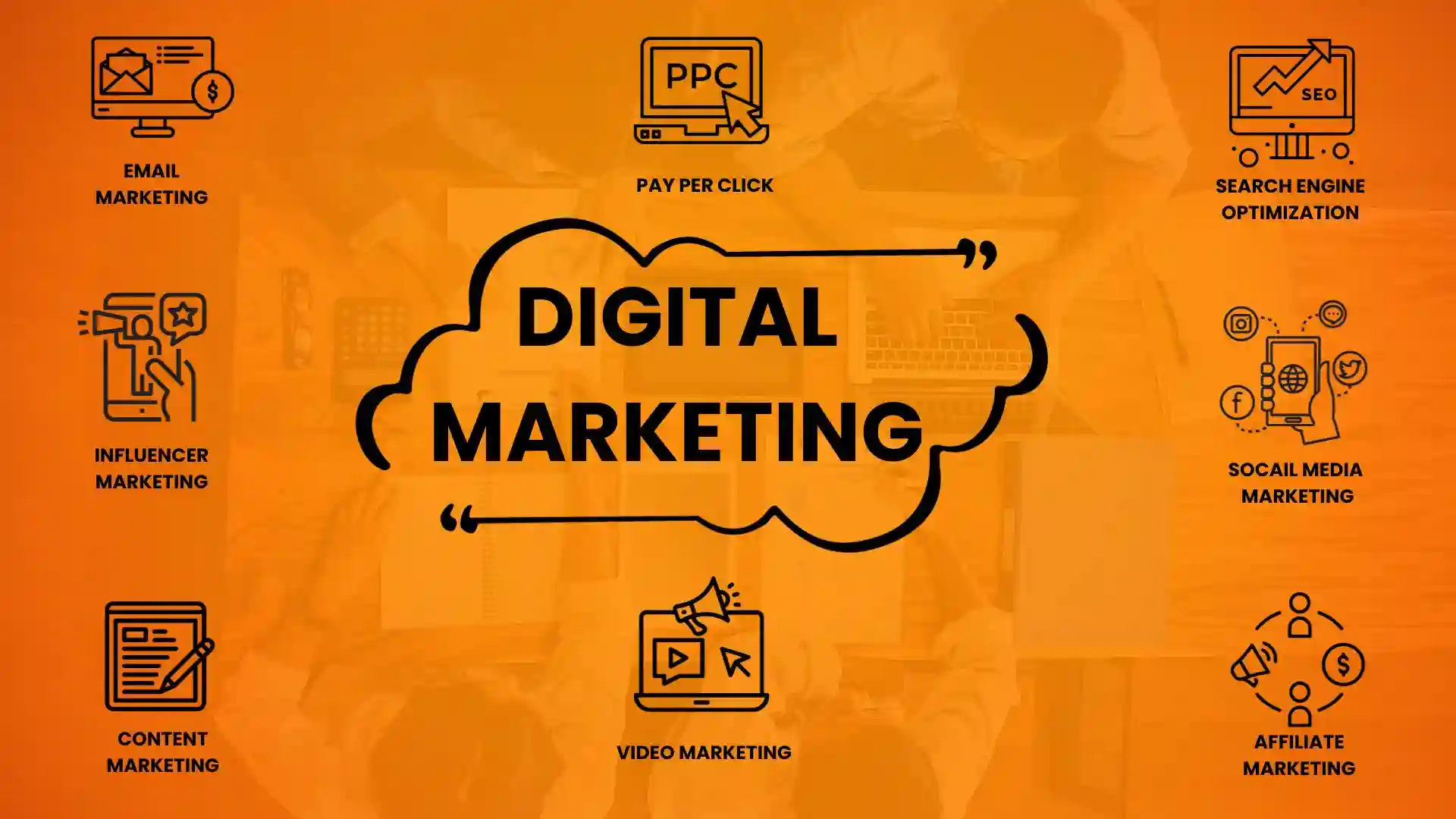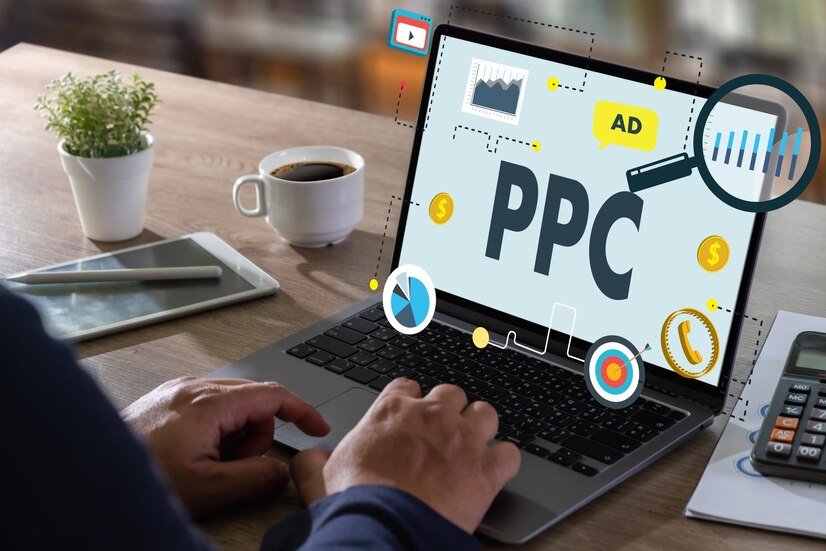
Introduction
Are you overwhelmed by the profound influence of regularly hearing about new digital marketing tactics fundamentally designed for business growth? Still, trying to figure out whether your business requires a modern digital marketing strategy or something else can help achieve your marketing objectives? Various new research suggests reaping the fruit of online marketing through several channels and platforms. Although many in the market still work on brick-and-mortar systems, most work is done via the Internet today.
In this ultimate guide to mastering digital marketing, we’ll explore the online marketing fundamentals. That’s because we have dug deeper and found the ways that effectively work and are experimented with. Let’s dive into it to uncover the untold secrets to digital marketing fundamentals.
Mastering Digital Marketing
The first thing that comes to mind after hearing “marketing” is customers. The end goal of every marketing strategy is to bring as many customers as possible to enhance the number of sales. Each sale brings revenue to the business, and each customer can turn into a permanent client if the quality of the product and the efficacy of the marketing strategy are ensured.
The Mastering principles behind digital marketing and social media marketing are naturally similar. These strategies are based on a single end goal to close more and more leads, turn the leads into customers, and make regular sales.
The required objectives of modern digital marketing can vary from strategy to strategy. Still, the end goal always remains the same. Before a business hires a company for digital marketing services, it is essential to understand how efficient or powerful online marketing for a business is.
Unleashing The Power Of Digital Marketing
Two or three decades ago, there were a small number of people who could even know about the Internet. But, this decade involves technology, artificial intelligence, and modern methodology. When the public was not using phones or social media platforms, it was acceptable to stay in a brick-and-mortar business and entertain a limited audience. But now, almost everyone has access to such digital marketing and social media platforms, so here arises an opportunity to sell as much as desired.
Before the technological advancement, each business could hardly serve a 2-mile radius. Now, a successful business in the United States can lock orders from Asian countries and deliver the products through shipping.
This tells us to clearly understand that we have a wide range of market segments to which we can sell our products! In addition, communication between manufacturers and consumers has become readily accessible because of such digital platforms.
What Are the Benefits of Digital Marketing?
Digital marketing has numerous benefits, including but not limited to the following:
- Digital marketing helps immensely in the brand awareness of businesses.
- With digital marketing campaigns businesses can generate more leads to grow in this digital era.
- A digital marketing strategy focusing on content creation helps bring traffic to websites or social media channels.
- Effective digital marketing tactics can enhance engagement on social media platforms.
- Turning buyers into loyal customers and advocates becomes more efficient with the help of exemplary marketing efforts.
Popular Digital Marketing Terms
Some popular terms in digital marketing to know before proceeding:
- Customer Persona: A detailed profile of your ideal customer to guide marketing efforts effectively.
- Keyword Stuffing/Density: The overuse of keywords in your content can negatively impact SEO and readability.
- PPC (Pay-Per-Click): A digital advertising model where advertisers pay a fee each time an ad is clicked, driving traffic to their website.
- SEO (Search Engine Optimization): Strategies and techniques to enhance your website’s visibility in search engine results, boosting organic traffic.
- Landing Page: A dedicated web page designed to convert visitors into leads or customers, often linked to specific marketing campaigns.
- Lead Generation: The process of identifying and attracting potential customers to grow the contact list for marketing purposes.
- Lead Magnet: An incentive or valuable offer designed to attract potential customers and capture their contact information.
- Direct-Response Copywriting: A subset of the copywriting field that aims to prompt an immediate action or response from the reader, often used in advertising and marketing.
- Bounce Rate: The percentage of visitors who leave the website after viewing only one page, often indicating an issue with engagement or relevance.
- C.R.O. (Conversion Rate Optimization):
The practice of optimizing your website or landing page to increase the conversion rate of traffic, such as making a purchase or signing up.
- Retargeting: Displaying ads to visitors who have previously interacted with the website, encouraging them to return and convert.
- Marketing Automation: Using software and technology to automate repetitive marketing tasks, nurture leads, and improve efficiency.
- C.T.A. (Call to Action): A prompt or button that encourages website visitors to take a specific action, such as signing up, subscribing, or making a purchase.
- Value Proposition: A statement that conveys the unique benefits and value your product or service offers customers.
- KPI (Key Performance Indicator): Measurable metrics that gauge the success and performance of marketing campaigns and business goals.
- C.P.M. (Cost Per Mille): The cost of a thousand ad impressions is often used in display advertising.
- C.T.R. (Click-Through Rate): The percentage of users who click on an ad or link after viewing it.
- CPC/CPL/CPA (Cost Per Click/Lead/Acquisition): The cost incurred for each click, lead, or customer acquisition in advertising campaigns.
- L.T.V. (Lifetime Value): The total revenue a customer is expected to generate throughout their relationship with a business.
- A.O.V. (Average Order Value): The average amount customers spend in a single transaction is helpful for revenue optimization.
- CRM (Customer Relationship Management): Software and strategies to manage and nurture customer relationships effectively.
- Sales Funnel: The visual representation of the stages a prospect goes through in the journey from initial contact to becoming a customer.
- R.O.A.S. (Return on Ad Spend): A metric used to evaluate the effectiveness of advertising campaigns by measuring the revenue generated compared to the advertising cost.
5 Ds of Digital Marketing
A unique and simplified approach to digital marketing is the 5 Ds approach. It provides a holistic view of the digital marketing industry to a beginner. It makes it easier for students to prioritize their learning around these five concepts.
Digital devices
Digital devices are the devices used to access digital channels, such as smartphones, laptops, tablets, and desktop systems. Gone are the days when the Internet was only available on desktop or laptop computers. Now, more than 50% of traffic to Google comes directly from smartphone users, which makes it imperative for digital marketers to adopt a “mobile-first” approach and optimize their websites for all devices to provide a consistent user experience.
Digital technology
It includes various technologies that digital marketers use to streamline marketing functions. These include but are not limited to technologies like marketing automation, SEO software suite, customer relationship management, marketing analytics tools, etc.
Digital Media
There are various kinds of digital media such as video, audio, written, or images. It is essential to create compelling and quality content on different social media platforms to gain noticeable results from marketing campaigns that can move the needle for your business. The integrated marketing approach calls for creating loads of content in various formats to maximize reach in the online world.
Digital Platforms
The various online platforms used to offer networking chances to the people hanging online, such as Google, YouTube, Facebook, LinkedIn, Twitter, and email, are called digital platforms. Every marketer should know the inner dynamics of these platforms to tailor marketing efforts to the algorithmic demands of the platform they are using. However, the topmost priority is to create user-friendly and helpful content for real people.
Digital Data
It means the amount and type of data available to digital marketers for finetuning their marketing campaigns. Data such as customer demographics, hobbies, and behaviors provide a meaningful understanding of the audience, which is far more effective in digital marketing than traditional offline marketing methods.
How To Create The Best Mastering Digital Marketing Strategy?
A digital marketing strategy is a part of a broad business plan that includes details about using digital channels to reach long-term business goals. A good strategy keeps the business on track. Every successful business has a comprehensive digital marketing strategy that dictates its marketing efforts throughout the year.
Analyse and evaluate the market
The first step is to analyze and evaluate the market. With clarity about your objective and the market you will operate in, it is easier to achieve tangible success in the long run. Suppose you have been working for a year or more. In that case, consider looking at your marketing analytics to gauge performance so far.
Knowing the Buyer’s Persona
It’s crucial to know who you will be promoting products to. Who are your potential customers? Knowing just rudimentary information about them isn’t enough. You should be crystal clear about the ideal customer. A digital marketing strategy is incomplete without a customer profile, also popularly known as a customer avatar or buyer persona.
Most businesses understand the basics of targeting, focusing on demographics like age, gender, profession, and location. But it’s not enough! You have a deeper understanding of the audience beyond demographic details.
All ultra-successful startups and top-tier businesses invest plenty of time and resources in knowing the psychographics of their target audience. Knowing details such as interests, income levels, preferences, pain points, fears, and aspirations of the audience can differentiate between a struggling and a promising business.
Besides demographics and psychographics, you should go a step ahead in digging into the online world of the audience. Russell Brunson, in his best-seller book “Traffic Secrets”, suggests that a business should know where their prospects are hanging online. Do they like to spend time on TikTok watching videos? Or does their past involve exchanging views in Facebook groups? Or are they part of discussion forums like Reddit or Tumblr?
Having specific details about the social platforms your audience spends time on is the key to marketing success. Every effective entrepreneurship venture focuses on knowing its prospects more than they know themselves.
Keeping Clear Goals
After analyzing the market competition and choosing your ideal prospects, now is the time to create goals. Your core objective is to boost the revenue of the business you are doing marketing; we all know that, right? But how can we make it realistic and achievable instead of just a written text on a document?
The answer is to create SMART goals. You must be wondering what SMART goals are. Don’t worry; we have got you covered. SMART is an acronym coined by George Doran in 1981 when he published a research paper titled “There’s a S.M.A.R.T. Way to Write Management’s Goals and Objectives.”
SMART stands for Specific, Measurable, Achievable, Realistic, and Timely. For example, instead of stating you want to increase business revenue before next year, setting a goal like “increase conversion rate by 1% on your landing page for your core product to drive more than 10% revenue by next quarter” would be a more realistic and relevant goal.
Creating such goals makes it easier to adjust your priorities and monitor critical analytical metrics to gauge your performance.
Evaluating Past Strategies
Making goals and executing your plan is a part of the puzzle. The real difference comes when you constantly test your strategies for effectiveness. Regular A/B testing of your marketing campaigns will provide valuable insights that will help you adjust your marketing strategy as you will have a better idea of what’s working and what’s not!
So, it’s recommended to keep an eye on Google Analytics, Google Search Console, and other marketing and analytics tools such as Semrush and Kissmetrics.
What Are The Different Types Of Digital Marketing?

What are the most effective digital marketing strategies? Let’s discuss the core digital marketing strategies one by one.
Content Marketing

The emerging favorite strategy for startups and even established businesses is content marketing. But is it a hype term or an actual tactic to bring true value to your business? The answer is complex. To find the truth, it’s crucial to analyze the results of content marketing campaigns by big names and rapidly growing brands.
A closer look at the results suggests that content marketing has been a successful strategy for many businesses with less expense and a positive return on investment, unlike paid advertising. However, with decreasing organic reach on platforms like Facebook, LinkedIn, and Medium, it is essential to know the tactics and techniques to execute an effective content marketing campaign.
It is now harder to gain significant engagement on social media platforms via organic posting. However, it doesn’t discourage you from trying it at all. Both search engines and social media platforms are created to provide helpful information, give a positive user experience, and keep users engaged throughout their online period. With this in mind, it’s better to understand the audience’s pain points and psychology to keep them hooked through your content.
Would you rather spend money on paid ads and waste it down the drain, getting low to no results, or try and establish a robust content marketing strategy that can benefit you in the long run, solidifying your brand online?
Social Media Marketing

Unlike content marketing, which is mainly focused on content-rich platforms, social media marketing includes pushing out valuable content on social media channels like Facebook, LinkedIn, Instagram, Pinterest, etc. It may involve organic posting or paid advertising, depending on the requirements of any business.
Search Engine Optimization

Since the emergence of search engines, especially Google, the discipline of search engine optimization, popularly known as SEO, has gained increasing significance. No matter how many times you have heard the phrase “SEO is dead,” rest assured, it is going nowhere any time soon. Due to its fundamental nature, it will stay for many more years. Google is a giant in the marketing world, with more than 80% share in the search marketing industry, according to Statista.com. Yes, you read that right, a whopping 80% market share! That’s unbelievable.
Influencer Marketing

Influencer marketing has started phasing in for a couple of years, thanks to social media platforms. With access to potentially millions of users at just a few clicks, the power to spread your message has come to an ordinary man. Unlike in the past when only a few people from the showbiz industry had the privilege to enjoy public attention, now ordinary people are becoming influencers through the power of knowledge and communication skills, cherishing the celebrity perks that once were available to only famous actors and sportspeople.
Amidst all this, businesses need to catch up in leveraging the influencers’ fan following. Unlike showbiz actors with a mass audience with general interests, social media content creators and influencers often have niche audiences with specific interests. It often results in better ROI for businesses to promote products to niche audiences than to run mass broadcast advertising.
Pay-per-click (P.P.C)

Although P.P.C. is a costly marketing strategy, we must recognize its other benefits. Many businesses see it as an extra overhead. Still, if used correctly, paid advertising can provide a significant return on investment. However, there are several factors to consider before running paid advertising to avoid wasting money.
Narrowing audience targeting, crips marketing copy, eye-pleasing ad creatives, and good positioning and offering all work in combination to pull out maximum conversions from random visitors. P.P.C. may only be suitable for some kinds of business. Still, e-commerce brands selling high-ticket products and local businesses benefit from it a lot, even with limited budgets.
Email Marketing

If you have read “Email marketing is dead now!” you are not alone. Similar to SEO, email marketing is resistant to market changes. Email marketing is way more effective regarding cost saving and higher returns. According to a leading email automation software Constant Contact’s studies, for every dollar spent on email marketing, you can expect $36 in revenue in return.
All affiliate marketers, most SaaS companies, and even e-commerce brands utilize email marketing for various purposes. Whether it’s your product launch, Black Friday sale, or just staying in touch with your audience to build trust, email marketing campaigns can benefit you without a shadow of a doubt. Even some content creators leverage the power of email newsletters to create million-dollar income streams without any official website.
Video Marketing

The trend of short videos is on a constant rise. Short video platforms like TikTok and YouTube shorts have the potential for vitality more than any other social media platform. It is the number 1 strategy that can catapult the direction of your business if utilized efficiently.
People tend to watch videos more than read articles as it’s less taxing for them. Reading possesses more cognitive overload, while videos are more entertaining by nature. Keeping in view these fundamental human psychological factors, video marketing platforms innovated video technology and optimized algorithms, providing us with high-quality video content that is both relevant and helpful.
Affiliate Marketing

Many businesses may still need to learn about affiliate marketing benefits. According to the Pepperjam report of October 2019, affiliate marketing was the top-ranked strategy for client acquisition. But you must be wondering what exactly is affiliate marketing.
Affiliate marketing is performance marketing in which companies pay the marketer who opts to promote their products in exchange for a fixed or recurring commission once the lead is converted into sales. Some companies pay for leads, while others pay for sales when any new customer arrives at their site after clicking the affiliate link used by an affiliate marketer (provided by the company to track conversions and sales).
Unlike SEO, which takes months to work (in many cases), or paid advertising, which costs you an arm when you are just starting, affiliate marketing is the method that can prove life’s savior for your business.
Affiliate marketing can be used in two ways. You can either work as an affiliate for a business to earn a decent income for yourself by passively promoting products. Alternatively, If your goal is to run an e-commerce business or agency, hiring affiliates can be a cost-effective way to manage your marketing budget.
Which Type Of Digital Marketing Strategy Is Best?
Determining which type of digital marketing is best is a complicated question as there is no rule of thumb for it. However, the answer is based on considering various factors related to your business and its nature.
Below are some of the questions you should be asking yourself to determine which digital marketing strategy will work best for you, especially if you are starting and have a limited budget:
- What are the pain points of your audience, and what do they aspire that your product can help them achieve?
- What type of people do you have in your connections, and what type of audience is your ideal target?
- What is your marketing budget, and what resources do you have onboard to help you implement a marketing campaign?
- Pay attention to the importance of watching what your competitors are doing.
- Subscribe to Google alerts and keep yourself updated on industry news to know what the trending tactic is working.
- Always be open to discard what’s not working and adapt your strategy to incorporate a new approach.
Suppose you take some time to answer these questions honestly. In that case, you can expect to lay the foundation upon which you can confidently decide which marketing strategy to adopt for your business that can provide the best return on investment.
Remember, you can always change your strategy after A/B testing and meticulously reading the marketing analytics.
What Is The Future Of Digital Marketing?
Digital marketing has seen a considerable spike in recent years. As it was nearly impossible to continue sitting at home idle, companies started leveraging online technology to allow employees to manage work from home. Educational institutes started offering online lectures so students could catch up on their studies.
Digital marketing was no longer restricted to only marketing professionals and business owners. A local business previously struggling with offline marketing methods also became aware of the promising potential of digital marketing channels.
This upward trend in digital marketing made it a lucrative and sustainable industry almost every fresh graduate wanted to join. This gave rise to the digital marketing and online business training industry. Hundreds of self-made millionaires turned into online instructors to educate audiences about making money online methods. According to research.com, the education industry will reach $337 billion in three years.
In our article on the Mastering of digital marketing, we delved deeper into the various facets of digital marketing. We analysed the 5 Ds of digital marketing, learnt about its benefits and core disciplines. If you are starting out or already have some knowledge about marketing principles, grasping concepts like search engine optimization, paid advertising, social media marketing, email marketing, affiliate marketing, and conversion rate optimization is essential.
Final Thoughts
Moreover, it is recommended to stay updated with emerging trends and technologies in digital marketing. If you want to achieve sustainable success in this ever-changing domain as a digital marketer, it is an unquestionable necessity. It will be the key to sustained success in this ever-changing landscape. So, take a step ahead and arm yourself with this digital knowledge, attain technical and soft skills, pursue quality certifications, and gain hands-on experience to stay relevant in the digital marketing industry.
FAQs:
Is digital marketing worth it?
Digital marketing is worth every penny if executed strategically and professionally. It can catapult your business and bring revenue you may not have previously imagined.
How does technology affect marketing?
Technology has transformed marketing, mainly due to advancements in data science and machine learning. Marketing tools provide data-driven insights, automate tasks, and provide personalized customer experiences. You can do targeted advertising, improve based on analytics, and enhance customer engagement.
Do I need a website?
Yes, it is crucial to have your website succeed in this online era as it works as your digital presence, just like you will have a physical shop to display your products.
How much does digital marketing cost?
The cost of digital marketing services can vary greatly depending on various factors like your campaign objective, the platform used, and your niche. It can start from a few hundred dollars to go as high as a few thousand dollars.
What is the difference between digital marketing and social media marketing?
Digital marketing is an umbrella term that includes various online channels and strategies. However, social media marketing is a subset of digital marketing that involves engaging on social media platforms like Facebook, LinkedIn, Twitter, and Instagram to achieve your marketing goals.
What is the difference between On-Page SEO and Off-Page SEO?
On-page SEO includes optimizing your web pages by improving content quality and using keywords strategically throughout the website. On the other hand, Off-Page SEO involves building backlinks from external websites pointing to your website, enhancing your site’s authority.
What is the difference between digital marketing and content marketing?
Digital marketing includes various activities to attract and retain customers, such as social media marketing, email marketing, SEO, and paid ads. However, content marketing is a subset of digital marketing. It mainly involves creating quality content and distributing it among the target audience.

Great in depth article about digital marketing
My cousin recommended this website, however I’m not sure whether this post is his since nobody else knows so much about my problem. You’re wonderful.
You’re a highly talented blogger, and this is incredibly interesting. I’ve subscribed to your feed and am eager to read more of your amazing posts. I’ve also shared your website on my social media accounts!